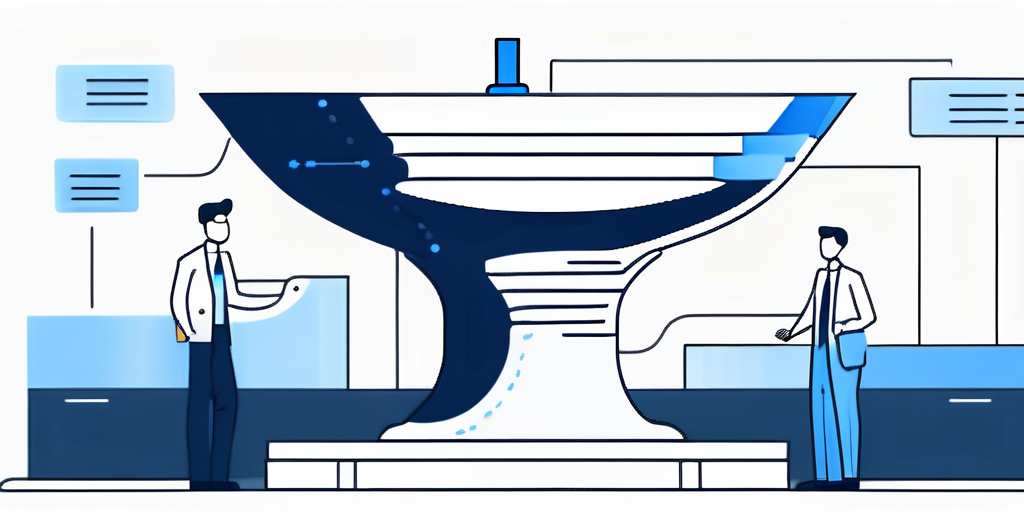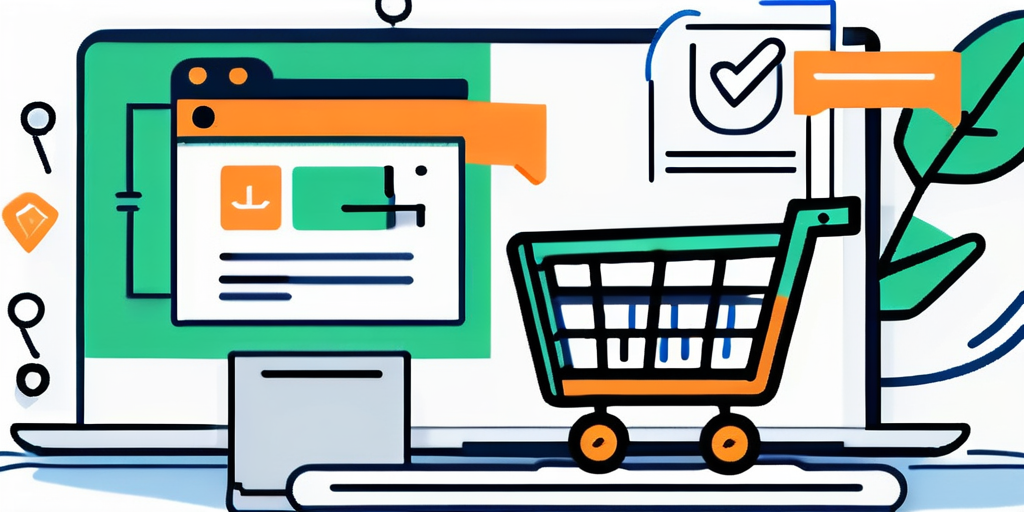In the realm of digital marketing and sales, the term “Sales Qualified Lead” (SQL) holds significant importance. It is a prospective customer who has been researched and vetted—first by an organization’s marketing team and then by its sales team—and is deemed ready for the next stage in the sales process. An SQL is a prospect that is starting to exhibit buying behavior.
The process of qualifying leads is crucial for businesses, as it allows them to focus their efforts on the most promising prospects, thereby increasing the efficiency and effectiveness of their sales strategies. This article will delve into the intricacies of Sales Qualified Leads, providing a comprehensive understanding of this vital concept in the context of website leads.
Defining Sales Qualified Lead (SQL)
A Sales Qualified Lead (SQL) is a prospective customer who has shown interest in your product or service and meets your company’s predefined criteria for a potential sale. This lead has not only expressed interest but has also been qualified by your sales team as a potential customer who is worth pursuing with direct sales tactics.
The qualification of a lead as an SQL is typically based on their interaction with your company’s content, their demographic characteristics, and their fit in relation to your business’s buyer personas. The specifics of what makes a lead an SQL can vary greatly from one business to another.
Importance of SQLs
SQLs are vital to any sales strategy because they help your sales team focus on the leads that are most likely to convert, thereby increasing the efficiency and effectiveness of your sales process. By focusing on SQLs, your sales team can prioritize their efforts on the prospects that are most likely to become customers, which can result in increased sales and revenue for your business.
Moreover, understanding the concept of SQLs can help your marketing team better align their efforts with those of your sales team. By understanding what qualifies a lead as an SQL, your marketing team can tailor their content and campaigns to attract and engage these high-quality leads.
SQLs vs. Other Types of Leads
Not all leads are created equal. In the world of sales and marketing, leads are often categorized into different types based on their level of qualification. Apart from SQLs, other common types of leads include Marketing Qualified Leads (MQLs), Product Qualified Leads (PQLs), and Service Qualified Leads (SQLs).
Each type of lead represents a different stage in the buyer’s journey. MQLs are leads that have engaged with your marketing efforts but are not yet ready to receive a sales call. PQLs are leads who have used your product and shown interest in becoming a paying customer. SQLs, on the other hand, are leads that your sales team has accepted as worthy of a direct sales follow up.
Qualifying a Lead as an SQL
The process of qualifying a lead as an SQL involves a series of steps, typically starting with the lead’s initial interaction with your company’s content or website. The lead’s actions and behaviors are then tracked and analyzed to determine their level of interest and fit with your product or service.

Once a lead has shown sufficient interest and is deemed a good fit, they are then passed on to the sales team for further qualification. The sales team will then engage with the lead, typically through a sales call or meeting, to assess their readiness to buy.
Criteria for SQLs
The criteria for qualifying a lead as an SQL can vary greatly from one business to another, depending on factors such as the nature of the product or service, the target market, and the sales process. However, some common criteria used to qualify SQLs include the lead’s budget, their authority to make buying decisions, their need for the product or service, and their readiness to buy.
These criteria are often referred to as BANT (Budget, Authority, Need, Timing). However, it’s important to note that not all businesses use BANT, and some may have their own unique set of criteria for qualifying SQLs.
Lead Scoring
Lead scoring is a common method used to qualify leads as SQLs. This involves assigning points to leads based on various factors such as their behavior on your website, their interaction with your content, and their demographic characteristics. The total score is then used to determine whether the lead is an SQL and should be passed on to the sales team.
Lead scoring can be a highly effective way to prioritize leads and ensure that your sales team is focusing their efforts on the most promising prospects. However, it requires a deep understanding of your target market and buyer personas, as well as a well-defined scoring system.
From SQL to Customer: The Sales Process
Once a lead has been qualified as an SQL, they are then moved on to the next stage of the sales process. This typically involves a series of sales activities such as sales calls, meetings, and negotiations, all aimed at moving the SQL towards a purchase decision.

The specifics of this process can vary greatly from one business to another, depending on factors such as the nature of the product or service, the sales strategy, and the buyer’s journey. However, the ultimate goal is always the same: to convert the SQL into a paying customer.
Sales Follow-Up
The sales follow-up is a crucial part of the sales process. This is when the sales team reaches out to the SQL to discuss their needs and how your product or service can meet those needs. The goal of the sales follow-up is to build a relationship with the SQL, understand their needs and concerns, and position your product or service as the solution.
The sales follow-up can take many forms, from a simple phone call or email to a more formal meeting or presentation. The key is to tailor the follow-up to the SQL’s needs and preferences, and to provide them with the information and reassurance they need to make a buying decision.
Negotiation and Closing
Negotiation is often a key part of the sales process, especially for B2B sales. This is when the sales team and the SQL discuss the terms of the sale, such as the price, delivery, and payment terms. The goal of the negotiation is to reach an agreement that is satisfactory to both parties.
Once an agreement has been reached, the sale is then closed, and the SQL becomes a customer. However, the relationship doesn’t end there. Post-sale follow-up and customer service are crucial for maintaining the relationship and ensuring customer satisfaction.
Improving SQL Conversion Rates
Improving your SQL conversion rates can have a significant impact on your sales and revenue. This involves not only increasing the number of leads that are qualified as SQLs but also improving the effectiveness of your sales process in converting these SQLs into customers.
There are many strategies and tactics that can be used to improve SQL conversion rates, from refining your lead qualification criteria and process, to improving your sales follow-up and negotiation skills. The key is to continuously monitor and analyze your performance, and to make data-driven decisions.
Refining Lead Qualification
Refining your lead qualification process can help increase the number of leads that are qualified as SQLs. This can involve tweaking your lead scoring system, refining your buyer personas, or improving your content and marketing campaigns to attract and engage high-quality leads.
It’s important to remember that lead qualification is not a one-size-fits-all process. What works for one business may not work for another. Therefore, it’s crucial to continuously test and refine your lead qualification process based on your own data and results.
Improving Sales Follow-Up and Negotiation
Improving your sales follow-up and negotiation skills can also have a significant impact on your SQL conversion rates. This can involve training your sales team in effective sales techniques, implementing a structured sales process, or using sales enablement tools to improve efficiency and effectiveness.
Again, it’s important to remember that what works for one business may not work for another. Therefore, it’s crucial to continuously test and refine your sales process based on your own data and results.
Conclusion
In conclusion, Sales Qualified Leads (SQLs) are a crucial component of any sales strategy. They represent the leads that are most likely to convert into customers, and therefore, understanding and effectively managing SQLs can have a significant impact on a business’s sales and revenue.

From defining and qualifying SQLs, to moving them through the sales process and improving conversion rates, every aspect of managing SQLs requires a deep understanding of your target market, a well-defined process, and continuous monitoring and refinement. By mastering these aspects, businesses can significantly improve their sales performance and achieve their revenue goals.
Frequently Asked Questions
What is a Sales Qualified Lead (SQL)?
A Sales Qualified Lead (SQL) is a prospective customer that has been researched and vetted by both the marketing and sales teams, and deemed ready for the next stage in the sales process. Unlike leads at the top of the funnel, SQLs have shown a clear interest in purchasing a company’s products or services and meet specific criteria that make them likely to become customers.
How does an SQL differ from an MQL (Marketing Qualified Lead)?
SQLs differ from MQLs in terms of their readiness to buy. An MQL is a lead who has engaged with a company’s marketing efforts and is considered likely to become a customer but hasn’t yet been fully vetted by the sales team. An SQL, on the other hand, has passed additional qualification steps, showing specific interest in making a purchase and meeting the sales team’s criteria for being considered a viable prospect.
What criteria are used to qualify an SQL?
Criteria used to qualify an SQL can vary by company but typically include:
- Need: The lead has a clear need that the company’s product or service can address.
- Budget: The lead has the budget to purchase the product or service.
- Authority: The lead has the authority to make a purchasing decision or significantly influence it.
- Timing: The lead intends to make a purchasing decision within a reasonable timeframe that aligns with the company’s sales cycle.
Why are SQLs important to the sales process?
SQLs are crucial to the sales process because they represent leads with a high likelihood of converting into customers, allowing sales teams to focus their efforts more effectively. Concentrating on SQLs helps improve the efficiency of the sales process, increases the conversion rate, and ultimately contributes to higher revenue. Properly identifying SQLs also ensures that the sales team’s time is spent on leads who are truly ready for a sales conversation, optimizing resource allocation.
What strategies can be used to convert SQLs into customers?
To convert SQLs into customers, businesses can employ several strategies, including:
- Personalized Communication: Tailor communication and sales pitches to address the specific needs, pain points, and interests of the SQL.
- Demonstrations and Trials: Offer product demonstrations or free trials to showcase the value of the product or service firsthand.
- Consultative Selling: Employ a consultative approach that focuses on building a relationship and advising the SQL on the best solutions for their needs.
- Follow-Up: Implement a timely and consistent follow-up strategy to keep the lead engaged and move them towards a purchase decision.
- Objection Handling: Prepare to address common objections or concerns that SQLs may have, showing how your product or service can effectively solve their problem.
Lead Qualification: Related Glossary Terms
Still unsure about Contact Button?
3 reasons to give it a try
- Start at no cost with our Basic Plan. We'll even help install your first button for free!
- Our all-in-one widget will make your website easier to use and help you capture more leads.
- All your existing website plugins, apps, and menus will still work after you install a Contact Button, so it can be easily removed if you no longer want it.
Basic Plan
Free
Good for websites with fewer than 1,000 visitors per month
- Up to 10 New Leads per Month
- Up to 100 Monthly Button Clicks
- Use Custom Google Fonts
- Hide Contact Button Branding
- Embed Your Own Affiliate Link
Max Plan
$10
Remove monthly lead & click limits and Contact Button branding
- Unlimited Monthly Leads
- Unlimited Button Clicks
- Use Custom Google Fonts
- Hide Contact Button Branding
- Embed Your Own Affiliate Link